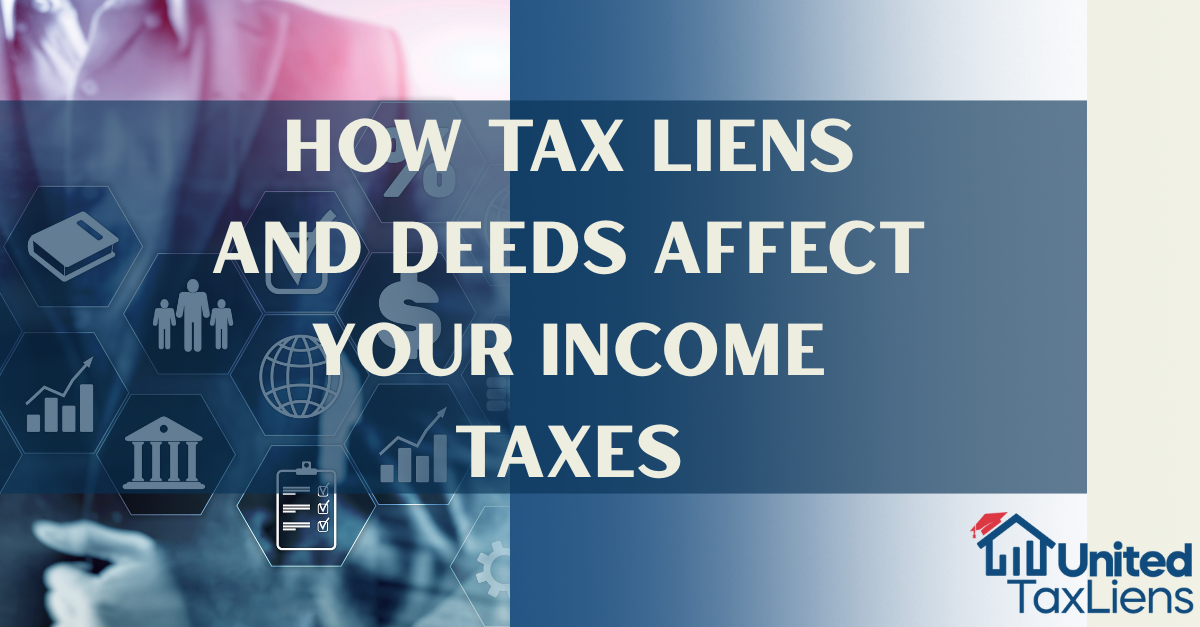(A Little Less Glamorous, Still Super Important)
Tax lien and tax deed investing can be a great way to build wealth—but like any good thing, Uncle Sam wants a piece. While the returns can be solid, understanding how these investments affect your income taxes is key to keeping those profits in your pocket (instead of writing surprise checks come April).
Here’s the deal: the IRS doesn’t treat all tax lien and deed profits the same. It all depends on how you're making your money.
If You Earn Interest From Redeemed Tax Liens…
Congrats! That’s the goal for many lien investors, earning passive income while the property owner pays off their debt. But keep in mind: the IRS sees this as ordinary interest income.
In other words, it’s treated just like:
- Interest from a savings account
- Earnings from a bond
- Other fixed-income investments
So yes, it’s fully taxable, and you’ll need to report those earnings on your return. Miss it, and you could face penalties. That’s not the kind of surprise you want after a year of smart investing.
Pro tip: Keep clean records. Depending on how many liens you hold, interest payments might trickle in throughout the year. Having a spreadsheet or using accounting software to track redemptions will save you a ton of hassle at tax time.
If You End Up With the Property…
Let’s say the redemption period passes and the owner doesn’t pay. You are now awarded the property. Awesome! But now you’re in a different tax category.
How it affects you depends on what you do next:
- Sell it? That triggers capital gains taxes, just like any real estate sale. You’ll be taxed on the profit, based on how long you held the property.
- Rent it out? Now you're a landlord. That means you’ll need to report rental income, but you may be able to deduct expenses like repairs, insurance, and property management fees.
- Hold it? Maybe no tax due until a transaction happens (sell or rent), but you'll still need to keep records, especially for your basis (what you paid + any costs of acquisition).
Keep in Mind: This Can Get Complicated Fast
Some things that might throw you off:
- How do you calculate your “basis” on a tax deed property you got for pennies on the dollar?
- Can you deduct travel costs for out-of-state auctions?
- What if you’re investing through an LLC or partnership?
These are all great questions and they’re exactly why a tax professional is your best friend during filing season. Better yet, talk to them before you start investing heavily. A good tax strategy can help you:
- Maximize deductions
- Choose the right entity structure (if needed)
- Avoid rookie mistakes that raise red flags with the IRS
TL;DR: Don’t Let Taxes Sneak Up on You
Earning interest? Taxable.
Taking ownership? Taxable – eventually.
Want to stay out of trouble and keep more of your returns? Talk to your personal tax pro.
And if you’re looking for tax lien guidance that includes more than just the paperwork, at United Tax Lien, we help investors understand the full picture: from bidding smart to filing right.
Because making money is great. Keeping it? Even better.
This blog is for informational purposes only and should not be relied upon as financial or investment advice. Real estate investing carries risks, and individual results will vary. Always consult with your team of professionals before making investment decisions. The authors and distributors of this material are not liable for any losses or damages that may occur as a result of relying on this information.



